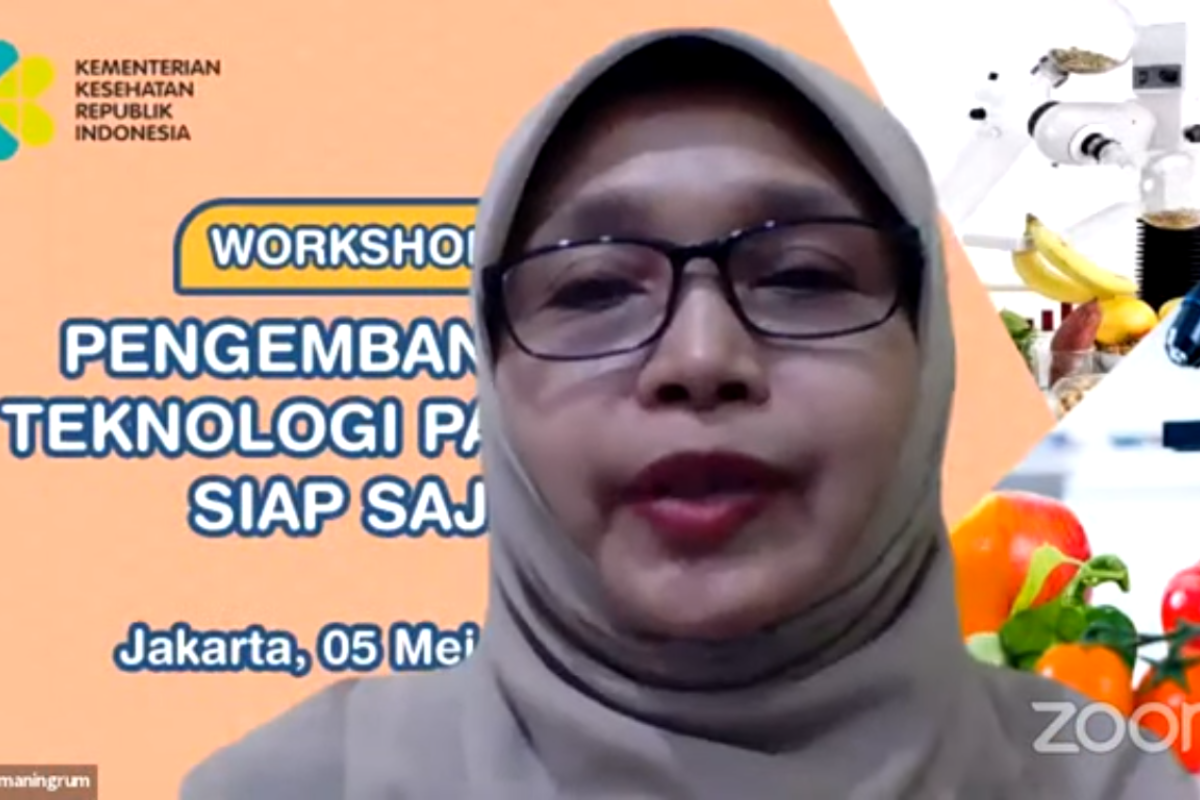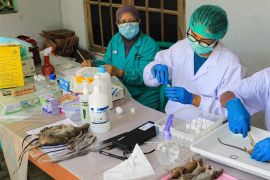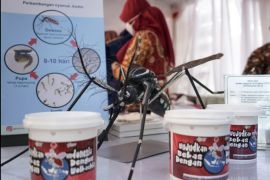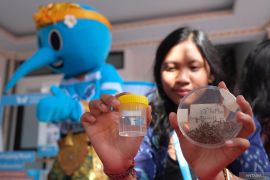Another thing that needs to be considered in personal hygiene is the potential for cross-contamination, which allows the movement of bacteria or microorganisms from food processors or from the environment around food processingJakarta (ANTARA) - Ready-to-eat or fast foods that have been processed in unhygienic conditions carry the risk of being contaminated with the Staphylococcus aureus bacterium, a food safety expert from IPB University has cautioned.
"Staphylococcus aureus is a bacterium that can produce toxins and cause food poisoning," said Harsi D. Kusumaningrum in a written statement issued here on Saturday.
She said processing of fast-food is very diverse and involves a variety of ingredients. Besides using safe and quality ingredients, businesses must ensure personal hygiene and good food processing, in accordance with the five food safety rules recommended by the World Health Organization (WHO), she added.
The requirements for processing ready-to-eat and fast foods have been stipulated through government regulations, but there are still business actors who process food carelessly, she claimed.
Unhygienically processed food can pose health risks due to contamination at the processing stage, she said.
"What happens if there are microbes (in processed food ingredients)? That could cause food poisoning and food infections," she explained.
Kusumaningrum, who is a lecturer at the Faculty of Agricultural Technology at IPB University, said that the Staphylococcus Aureus bacteria can grow optimally in food products stored at 6-48 degrees Celsius and in a neutral or slightly acidic pH.
The bacteria can produce enterotoxins and can be easily found in processed foods made from meat, eggs, milk, and tuna, among other things, she added.
Eliminating bacteria from processed foods is a difficult task since not all products pass a sterilization process, she pointed out. It is not surprising that there are still many food poisoning cases being reported in the country, especially in household processed foods, such as packaged rice meals, she said.
In 2009, Kusumaningrum and her team conducted a study on the spread of S. Aureus, which examined the stages of processing food passes through; identified bacteria in food samples, and on the bodies of food processing workers and consumers; and, then measured the amount of spread of those bacteria in air.
Thirty-six percent of the fast-food samples investigated during the study were found to contain S. aureus bacteria. Meanwhile, eight percent of food processing workers were found not using assistive devices while handling food. The results of the study also showed that food was being stored at room temperature for more than two hours before consumption, which allowed it to be contaminated with S. aureus.
"Another thing that needs to be considered in personal hygiene is the potential for cross-contamination, which allows the movement of bacteria or microorganisms from food processors or from the environment around food processing," she pointed out.
According to the WHO, ready-to-eat food can be consumed if stored at room temperature for two hours. However, there are still many business actors who are storing food at room temperature for much longer, Kusumaningrum said.
In fact, bacteria can multiply very quickly — every 12 to 20 minutes, she noted. Thus, one bacterial cell can produce millions of cells a day, she said.
"S. aureus bacteria can easily spread through the air when food processors talk in front of the food," she added.
Efforts to reduce the risk of microbial contamination in ready-to-eat food would require continuous counseling; community involvement, including that of the mass media; continuous monitoring; and, performance evaluation, she said. In fact, most of these efforts have been conducted routinely every year, but cases of food poisoning are still being reported, she noted.
"So what's wrong? Actually, is there anything missing? Are there any changes and new problems? What needs to be considered is public awareness of food safety, whether it is correct or not. Changes in attitude or awareness must be improved," said the expert. (INE)
Related news: IPB University renews cooperation with CIFOR-ICRAF
Related news: UI forges cooperation with Central Information Commission
EDITED BY INE
Translator: Asep Firmansyah, Katriana
Editor: Fardah Assegaf
Copyright © ANTARA 2021











